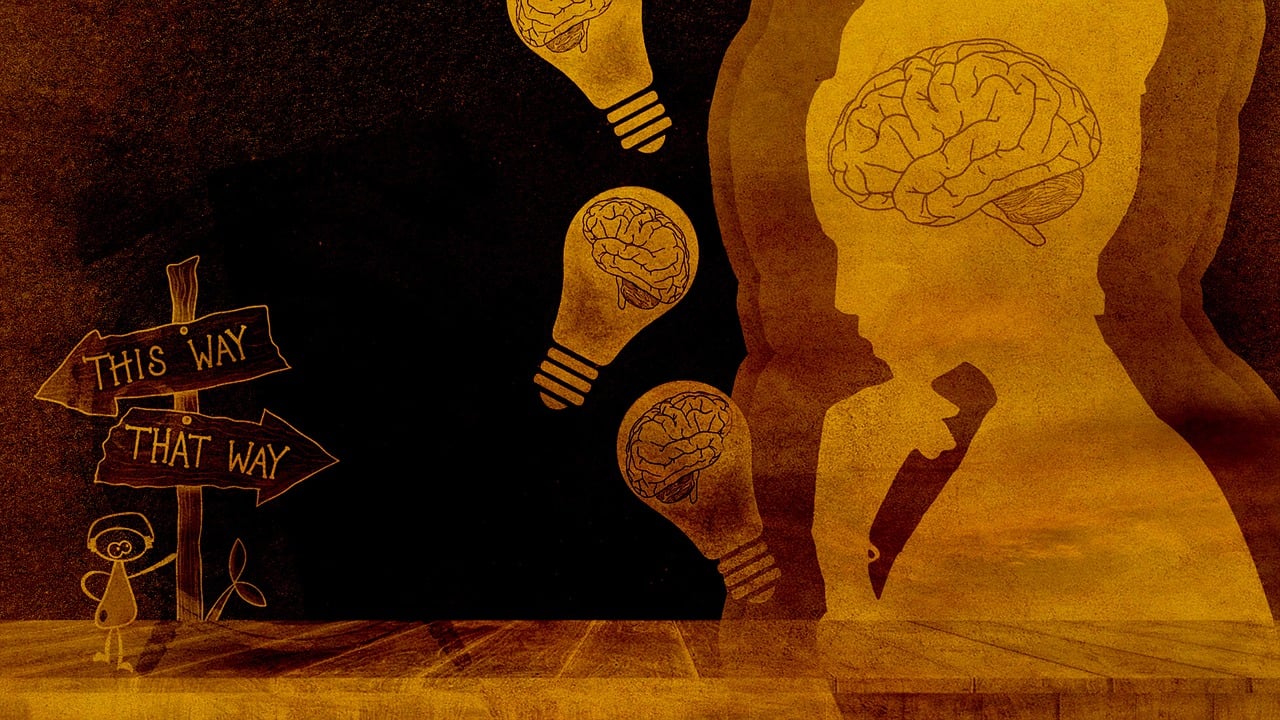Are you constantly feeling mentally drained and exhausted? Do you find yourself struggling to make simple decisions or experiencing difficulty staying focused throughout the day? If so, you may be experiencing decision fatigue. Decision fatigue is the mental exhaustion that occurs as a result of making countless choices, big or small, throughout the day. In this article, we will explore what decision fatigue is, its effects on our mental well-being, and strategies to effectively manage and reduce its impact on our lives. By understanding and addressing decision fatigue, we can regain control of our mental energy and improve our overall quality of life. So, let’s dive in and uncover the secrets of conquering decision fatigue!

This image is property of images.unsplash.com.
1. What is Decision Fatigue?
Making decisions is a fundamental part of our daily lives. From choosing what to wear in the morning to deciding what to have for lunch, we constantly make choices. However, have you ever experienced mental exhaustion and difficulties in decision-making? This phenomenon is known as decision fatigue.
1.1 Definition of Decision Fatigue
Decision fatigue refers to the deteriorating quality of decisions made after a long period of decision-making or when facing a multitude of choices. It occurs when the mental resources required for decision-making are depleted, leading to decreased willpower and impaired judgment.
1.2 The Science Behind Decision Fatigue
To understand decision fatigue, it is helpful to delve into the science behind it. Psychologists have found that decision-making consumes mental energy and depletes the brain’s glucose levels. As the brain’s energy reserves are depleted, it becomes increasingly difficult to make rational decisions and resist impulses.
1.3 Understanding the Impact of Decision Fatigue
The impact of decision fatigue can be far-reaching. Not only does it affect our ability to make sound decisions, but it also has implications for our mental and emotional well-being. Decision fatigue can lead to increased stress levels, reduced productivity, impulsive behavior, and strained relationships. Understanding the factors contributing to decision fatigue is crucial in managing and mitigating its effects.
2. Factors Contributing to Decision Fatigue
Several factors contribute to the experience of decision fatigue. By understanding these factors, we can take steps to minimize their impact and make more informed decisions.
2.1 Cognitive Overload
Cognitive overload occurs when we are bombarded with an excessive amount of information, options, or choices. It overwhelms our cognitive system, leading to mental exhaustion and decision fatigue. In today’s fast-paced world, we are constantly exposed to an overwhelming amount of information, making it essential to manage our cognitive load effectively.
2.2 Decision Complexity
Decisions that are complex and require extensive analysis and evaluation can contribute to decision fatigue. The more complex a decision is, the more mental effort and energy it requires. When faced with a series of complex decisions, our cognitive resources become depleted, impairing our ability to make optimal choices.
2.3 Decision Quantity
The quantity of decisions we make can also contribute to decision fatigue. Making a high volume of decisions, even seemingly mundane ones, can exhaust our mental resources and lead to decision fatigue. This is especially evident in professions that involve frequent decision-making, such as executives or customer service representatives.
2.4 Decision Making Styles
Each individual has their own decision-making style, which can influence the likelihood of experiencing decision fatigue. Some individuals tend to overanalyze and ruminate over decisions, consuming excessive mental energy. Others may rush into decisions impulsively without considering the consequences. Understanding our own decision-making style can help us make more effective choices and manage decision fatigue.

This image is property of images.unsplash.com.
3. Signs and Symptoms of Decision Fatigue
Recognizing the signs and symptoms of decision fatigue is crucial in addressing and managing its impact on our lives. Here are some common indicators to watch out for:
3.1 Mental Exhaustion
One of the primary symptoms of decision fatigue is mental exhaustion. You may feel mentally drained, fatigued, or overwhelmed after prolonged periods of decision-making. This mental exhaustion can make it difficult to concentrate, impairing your ability to make sound judgments.
3.2 Difficulty Making Decisions
Decision fatigue often manifests as difficulty in making decisions, even for simple choices. You may find yourself indecisive, second-guessing your choices, or experiencing decision paralysis. This can lead to frustration and a sense of being overwhelmed by even the smallest decisions.
3.3 Impulsive Behavior
Interestingly, decision fatigue can also lead to impulsive behavior. When your mental resources are depleted, you may be more susceptible to impulsive choices or giving in to immediate gratification, rather than considering the long-term consequences. This can have a negative impact on various aspects of your life, such as finances or relationships.
3.4 Reduced Willpower
Decision fatigue can also erode your willpower. After making numerous decisions throughout the day, you may find it challenging to resist temptations or stick to your goals. This can lead to unhealthy habits, procrastination, or a lack of self-discipline.
3.5 Procrastination
Procrastination is another common symptom of decision fatigue. When faced with decision-making, particularly complex or important decisions, you may find yourself putting them off or engaging in avoidance behaviors. This can perpetuate decision fatigue and create a cycle of delayed action.
4. The Effects of Decision Fatigue
The consequences of decision fatigue can be significant and impact various areas of our lives. Understanding these effects can highlight the importance of managing decision fatigue effectively.
4.1 Decreased Performance and Productivity
Decision fatigue can impair our cognitive abilities and hinder our performance. As mental exhaustion sets in, our ability to think critically, solve problems, and make effective decisions diminishes. This can lead to reduced productivity and subpar performance in both personal and professional domains.
4.2 Increased Stress Levels
The cumulative effect of decision fatigue can contribute to heightened stress levels. The constant pressure of making decisions and the mental strain associated with decision-making can lead to chronic stress. This can negatively affect our overall well-being and leave us feeling overwhelmed and burnt out.
4.3 Impaired Judgment and Decision Making
As decision fatigue sets in, our judgment and decision-making abilities become impaired. We are more likely to make impulsive, irrational choices or rely on shortcuts and heuristics rather than careful analysis. This can result in suboptimal decisions, negatively impacting our personal and professional lives.
4.4 Negative Impact on Relationships
Decision fatigue can have a detrimental effect on our relationships. When we are mentally exhausted, we may struggle to communicate effectively, neglect the needs of others, or make hasty decisions that can strain our relationships. This can lead to misunderstandings, conflicts, and a breakdown in trust.

This image is property of images.unsplash.com.
5. Strategies to Manage Decision Fatigue
Managing decision fatigue is essential for maintaining our mental well-being and making effective choices. Here are some strategies to help you navigate decision fatigue:
5.1 Prioritize and Delegate
One effective way to combat decision fatigue is by prioritizing decisions and delegating where possible. Focus your mental energy on decisions that truly matter and have a significant impact on your life or work. Delegate less critical decisions to trusted individuals, freeing up mental capacity for more crucial choices.
5.2 Simplify and Automate
Simplifying and automating routine decisions can help reduce decision fatigue. For example, creating a capsule wardrobe or meal planning can minimize the number of daily decisions you need to make. Embracing technology and using automation tools can also streamline repetitive decision-making processes, saving mental energy for more critical tasks.
5.3 Establish Decision-Making Guidelines
Setting clear decision-making guidelines can provide structure and alleviate decision fatigue. Create frameworks or checklists that outline your criteria for specific types of decisions. This can help streamline the decision-making process and reduce cognitive overload.
5.4 Practice Mindfulness and Self-Care
Taking care of your mental and emotional well-being is crucial in managing decision fatigue. Practice techniques such as mindfulness meditation, deep breathing exercises, or engaging in hobbies that promote relaxation. Prioritize self-care activities that recharge your mental energy and reduce stress levels.
6. Maintaining Cognitive Resources
To prevent decision fatigue and maintain cognitive resources, it is essential to prioritize activities that support mental well-being.
6.1 Getting Sufficient Sleep
Sleep plays a vital role in replenishing mental energy and restoring cognitive function. Aim for a consistent sleep schedule and prioritize quality sleep to ensure your brain has the rest it needs to make effective decisions.
6.2 Practicing Stress Reduction Techniques
Chronic stress can deplete cognitive resources and exacerbate decision fatigue. Incorporate stress reduction techniques such as exercise, meditation, or journaling into your daily routine. These activities help manage stress levels and preserve mental energy.
6.3 Physical Exercise and Nutrition
Engaging in regular physical exercise and maintaining a balanced diet can also support cognitive function and reduce decision fatigue. Exercise improves blood flow to the brain, enhances focus, and boosts overall mental well-being. Similarly, nourishing your body with nutritious foods provides the energy and nutrients necessary for optimal brain function.
6.4 Limiting Distractions and Managing Time
Eliminating distractions and managing your time effectively can prevent cognitive overload and decision fatigue. Schedule dedicated time for focused work or decision-making, and create an environment free from unnecessary distractions. This allows you to allocate your mental energy efficiently and make more informed choices.
7. Developing a Decision-Making Routine
Establishing a decision-making routine can optimize your cognitive resources and minimize decision fatigue. Here are some strategies to incorporate into your routine:
7.1 Creating Decision Frameworks
Develop decision frameworks or models that provide a systematic approach to decision-making. These frameworks act as a guide and help you evaluate options objectively, reducing cognitive load and the accompanying decision fatigue.
7.2 Taking Breaks and Resting the Mind
Building regular breaks into your decision-making routine is essential for maintaining mental clarity and avoiding decision fatigue. Allow yourself time to rest and recharge between decisions, giving your brain an opportunity to replenish its resources.
7.3 Seeking Support and Collaboration
Don’t be afraid to seek support and collaborate with others when faced with complex decisions. Consulting trusted colleagues, mentors, or friends can provide valuable insights and lighten the cognitive load associated with decision-making. Collaboration also enables you to share the responsibility of decision-making, reducing decision fatigue.
8. Applying Decision-Making Strategies in Daily Life
Managing decision fatigue extends beyond big life choices; it encompasses everyday decisions. Here are some practical ways to apply decision-making strategies in your daily life:
8.1 Simplifying Wardrobe Choices
Reducing decision fatigue in your daily routine can start with simplifying wardrobe choices. Adopting a capsule wardrobe, where you have a curated collection of versatile clothing options, eliminates the need to make decisions about what to wear each day.
8.2 Meal Planning and Grocery Shopping
Meal planning and preparing a shopping list in advance can save mental energy when it comes to deciding what to eat. Planning meals for the week eliminates the need to make daily decisions about what to cook, reducing decision fatigue and ensuring healthier eating habits.
8.3 Setting Daily Priorities and Goals
By setting daily priorities and goals, you can streamline your decision-making process. Start each day by identifying the most critical tasks or decisions that need to be addressed. This helps you focus your mental energy on the most important areas, reducing decision fatigue.
9. Seeking Professional Help
In some cases, decision fatigue may become overwhelming, leading to significant distress and impaired functioning. Seeking professional help is an option worth considering to address and manage decision fatigue effectively.
9.1 When to Consider Professional Assistance
If decision fatigue significantly impacts your daily life, relationships, or work performance, it may be time to seek professional assistance. Persistent mental exhaustion, difficulty in making any decisions, or a sense of being overwhelmed could indicate a need for professional support.
9.2 Types of Professionals to Consult
Various professionals can provide guidance and support in managing decision fatigue. Psychologists, therapists, life coaches, or career counselors can help you develop strategies to cope with decision fatigue and enhance your decision-making skills.
9.3 Therapy and Coaching Options
Therapy or coaching sessions can provide a safe and confidential space to explore the underlying factors contributing to decision fatigue. These professionals can assist in identifying patterns, developing coping mechanisms, and implementing effective decision-making strategies.
10. Conclusion
Decision fatigue is a common experience that can impact our well-being, relationships, and overall quality of life. By understanding the factors contributing to decision fatigue and implementing effective strategies, we can reduce its impact and make more informed choices. Prioritizing self-care, maintaining cognitive resources, and developing a decision-making routine can help us navigate the complexities of decision fatigue and lead a more fulfilling and harmonious life.


